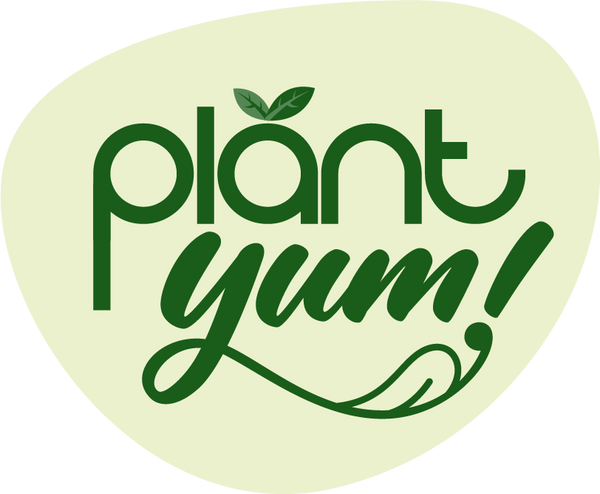
Protein on a Plant-Based Diet: Everything You Need to Know
Share
“Where do you get your protein?”
If you follow a plant-based diet, you’ve probably heard this question many times.
The truth is: getting enough protein on a plant-based diet is not only possible - it’s simple and natural when you know what foods to include. Even more importantly, protein is made only by plants. Through photosynthesis, plants create amino acids, which link together to form protein. Animals simply recycle those amino acids by eating plants or other animals.
So when we choose animal-based protein, we’re actually consuming a *second-hand source of protein. Choosing plant-based foods gives us the first-hand, original source - and along with it, we also get fibre, antioxidants, and healing phytonutrients.
---
🧬 What Is Protein and Why Do We Need It?
Protein is made up of amino acids - the building blocks your body uses to repair and grow tissue, support immune function, produce enzymes and hormones, and keep your muscles and organs healthy.
We need protein every day for:
- Growth and development, especially in children and teens
- Repairing and maintaining tissues
- Supporting healthy hair, skin, and nails
- Building and maintaining muscle
- Hormonal balance
- A strong immune system
---
🌾 How Much Protein Do You Actually Need?
Protein needs vary depending on your age, activity level, and overall health.
General guideline: 0.8 to 1 gram of protein per kilogram of body weight
Active individuals or athletes: 1.2 to 2 grams per kg
Children, pregnant or breastfeeding women: slightly higher needs
For example, if you weigh 60 kg, you need around 48 to 60 grams of protein per day - and you can meet that easily with whole plant foods.
But here’s something important to remember: animals in nature don’t count their protein intake, and we don’t need to either — unless we have specific physical goals or are training professionally in sports.
For most people, tracking every gram is unnecessary. Just focus on eating natural, whole, plant-based foods and as much variety as possible. All plant foods contain protein, and your body will do the rest.
---
🥦 Top Plant-Based Sources of Protein
Here are some excellent sources of plant protein to include in your everyday meals:
Legumes
Lentils, chickpeas, kidney beans, black beans, soybeans
Protein per cup (cooked): 13–18 g
Tofu, Tempeh, Edamame :Made from soybeans
Tofu: ~10 g per 100 g
Tempeh: ~18–20 g
Nuts and Seeds
Almonds, peanuts, sunflower seeds, pumpkin seeds, chia, flax
2 tbsp peanut butter: ~8 g
2 tbsp chia seeds: ~5 g
Whole Grains
Quinoa, oats, brown rice, millets, whole wheat
1 cup cooked quinoa: ~8 g
Fortified Plant Milks
Soy milk has the highest protein
1 cup soy milk: ~7 g
Green Vegetables
Spinach, green peas, broccoli, kale, moringa
1 cup cooked peas: ~8 g
---
🧩 What About “Complete” Protein?
A complete protein contains all 9 essential amino acids. While many individual plant foods don’t have all 9 in ideal proportions, this is not a problem.
Your body is smart. It combines amino acids from the different foods you eat throughout the day to build what it needs. You do not need to mix exact proteins in the same meal.
As long as you eat a variety of grains, legumes, nuts, seeds, and vegetables throughout the day, your body will get all the amino acids it needs - no calculator required.
---
🧒Don't kids need more protein as they are growing?
Yes - absolutely. Children can thrive on a plant-based diet when it includes enough calories and a variety of foods.
Some great options for kids include:
- Dal, rajma, chana, soy nuggets
- Nut butters, sesame or pumpkin seed spreads
- Tofu, tempeh, hummus, lentil pancakes
- Fortified plant milks
- Whole grain rotis, brown rice, and millets
If you're ever unsure, a qualified nutritionist can guide you on how to meet your child’s needs with real food.
---
💪 Can You Build Muscle on a Plant-Based Diet?
Definitely. Many top athletes, runners, weightlifters and bodybuilders are now plant-powered.
Focus on:
- High-protein, whole food meals
- Resistance and strength training
- Eating enough overall calories
- Rest and recovery
Plant-based meals like tofu stir-fries, chickpea curries, lentil soups, oats with seeds and nut butter, and protein-rich smoothies can all support active lifestyles and muscle growth.
---
💡 Practical Tips for Everyday Protein
- Soak or sprout beans and lentils to improve digestion and nutrient absorption
- Use nutritional yeast for a cheesy, protein-rich flavour in spreads and pasta
- Add hemp, chia or flaxseeds to smoothies, porridges, and salads
- Snack smart with roasted chana, trail mix, seed bars, or laddoos made with pulses
---
🌱 Final Thoughts
*You don’t need animal products to meet your protein needs.* In fact, by going directly to the source - plants - you get clean, first-hand protein along with fibre, vitamins, minerals, and zero cholesterol.
Whether you're raising healthy kids, staying active, or simply trying to eat better, plant-based protein is abundant, delicious, and powerful.
Eat a wide variety of whole plant foods, listen to your body, and trust nature. It’s got you covered.
💬 Have questions about plant protein or want help planning your meals? We’d love to support you.
